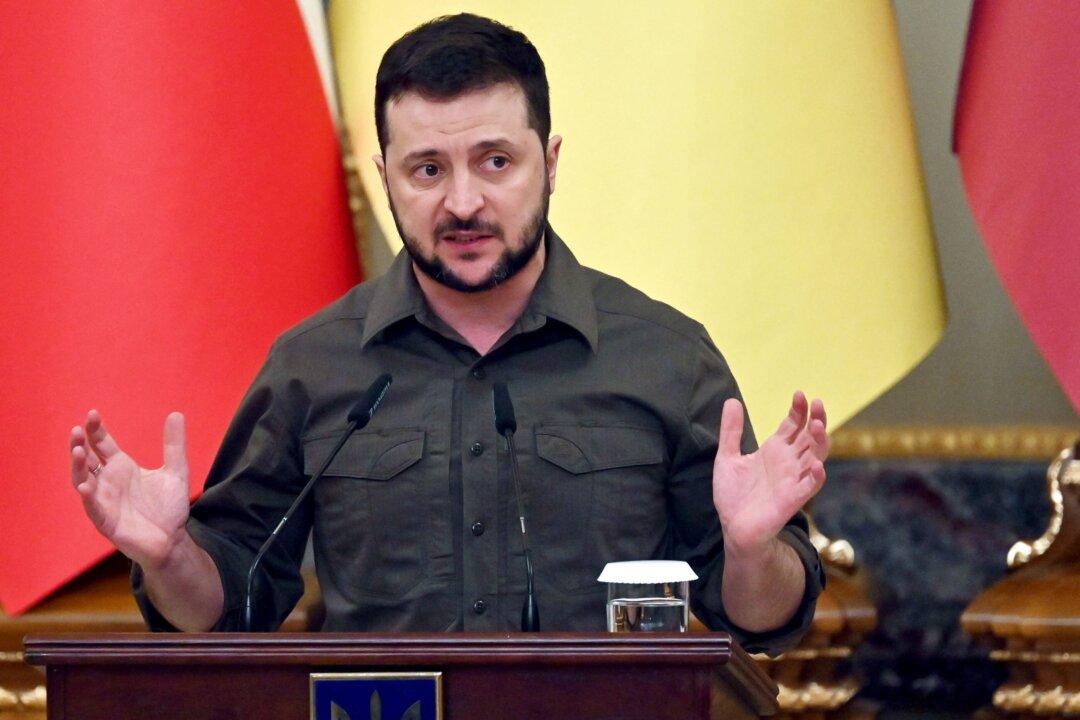KYIV, Ukraine—Russian forces captured territory along a frontline river in eastern Ukraine on June 20, and President Volodymyr Zelenskyy predicted that Moscow would escalate attacks ahead of a summit of European leaders expected to welcome Kyiv’s bid to join the European Union.
Moscow’s separatist proxies claimed to have captured Toshkivka, a town on the mostly Ukrainian-held western bank of the Siverskyi Donets river, south of Sievierodonetsk, which has become the main battlefield city in recent weeks.





